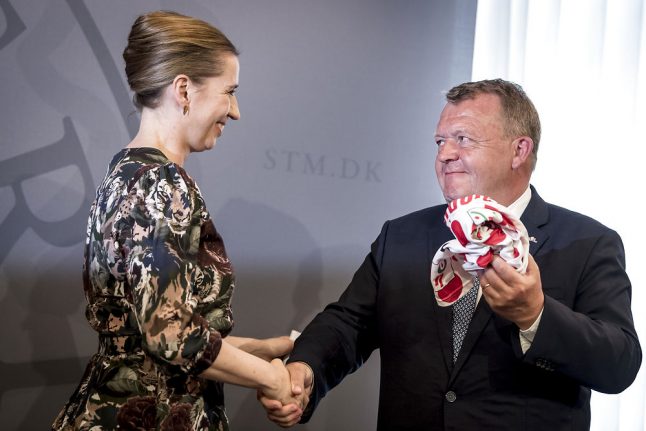Aside from Frederiksen’s own Social Democrats, the three other parties in the traditional ‘red bloc’ on the left of the Danish parliament are crucial to forming the new government.
That is because, even though the Social Democrat leader wants to work with both the right and left when in government, it is the left-wing parties who must vote to confirm her as prime minister.
That would normally be expected, just as the standard position for parties on the right would be to favour Liberal leader Lars Løkke Rasmussen.
But the left wing parties – the Social Liberals, Socialist People’s Party and Red Green Alliance – will now all seek to secure guarantees on their key policy areas in return for using their overall majority to confirm Frederiksen as PM.
READ ALSO: Frederiksen cancels holiday plans as challenging negotiations over new Danish government begin
On Friday, Red Green Alliance political leader Pernille Skipper said that her party would take a pragmatic approach to negotiations, and expected others to do the same.
“Our position is that we will all accommodate each other. Nobody is going in the door with 90 of their own seats, including us. We are ready to compromise and negotiate. But the Red Green Alliance also has its limits,” Skipper, whose party has 13 seats, told Ritzau.
The furthest to the left of the three, Skipper’s group is seeking to remove limits on social welfare support known as kontanthjælpsloft and its equivalent for people granted asylum and family reunification, integrationsydelsen.
Skipper has also called it “imperative” that any new government follows a left-wing approach to the economy.
That could provide an obstacle with the Social Liberals, a centre-left party which wants to ease Denmark’s strict approach to immigration while maintaining a reserve in public spending.
Morten Østergaard, leader of the Social Liberals, has called for Frederiksen to pledge a new direction on immigration – including rolling back the controversial ‘paradigm shift’ law which the Social Democrats helped to pass earlier this year.
The Social Liberals, who doubled their representation to 16 seats in the election, want promises on the environment, as well a reduction in the minimum salary required for non-EU skilled professionals to qualify for working and residency permits (Danish: beløbsgrænse). Østergaard’s party want to reduce the annual amount from 417,800 kroner to 325,000 kroner.
READ ALSO: How Danish salary rule can stack odds against skilled foreign workers
The Socialist People’s Party (SF), led by Pia Olsen Dyhr, ran on an environmentalist platform and also want more lenient immigration and asylum politics, notably lifting the current block on UN quota refugees and better conditions for children at controversial asylum facility Sjælsmark.
Dyhr also made it clear prior to the election that SF would seek an introduction of minimum requirements for staff-child ratios at childcare facilities.
With Frederiksen having stated she seeks to “broadly continue” the immigration policies of the previous government, and rejecting the childcare ratios, these look like potential sticking points for SF, which also doubled its share of seats in the election, to 14.
READ ALSO: Analysis: How immigration shift was key to Social Democrats victory in Danish election



 Please whitelist us to continue reading.
Please whitelist us to continue reading.
Member comments